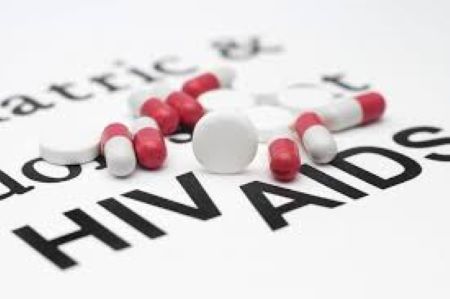Milicent Muyoma has been turned away twice from the clinic where she collects her HIV medication in Mathare, an informal settlement in Nairobi, Kenya.
On her last visit a week ago, she was told the medicines hadn’t arrived. When she returned three days later as advised, the clinic was closed. Now, she fears the consequences of missing her doses.
“I was warned by my doctor never to miss a single dose because it could lead to resistance,” Muyoma told SciDev.Net. “I don’t know what will happen if I don’t secure my medicines soon enough.”
The stockout follows a U.S. State Department directive on January 24, suspending funding for nearly all foreign assistance programs—including the President’s Emergency Plan for AIDS Relief (PEPFAR), which provides free HIV treatment to millions in sub-Saharan Africa.
The suspension is part of a 90-day review under the administration of President Donald Trump to align foreign aid with an “America First” policy.
On January 28, the U.S. issued a waiver exempting “core life-saving medicine” from the freeze. However, concerns persist over potential disruptions.
“The continent could experience an additional two to four million HIV-related deaths per year if this funding freeze continues,” warned Jean Kaseya, director-general of the Africa Centres for Disease Control and Prevention (Africa CDC).
He cautioned that the crisis could push 39 million people deeper into poverty and reverse decades of progress in combating HIV/AIDS.
“If there is a pandemic in Africa, all of us in the world will be affected,” he stressed. “Let us not forget the lesson from COVID.”
Gladys Kiio, executive director of the African Gender and Media Initiative Trust in Kenya, warns that the crisis will disproportionately affect women and girls.
“They are already more vulnerable to HIV due to societal inequalities,” Kiio told SciDev.Net. “Making treatment unavailable or unaffordable will only double their risk.”
She highlighted the impact on USAID-funded initiatives, such as voluntary male circumcision, which reduces HIV infection rates by up to 50%.
“If large numbers of people miss their doses, we risk increasing drug resistance, reversing the gains we’ve made, and worsening the epidemic,” she added.
Despite the exemption for life-saving medicines, anxiety is growing in affected communities.
“Nobody knows what the end game will be,” said Nelson Otuoma, executive director of the National Empowerment Network of People Living with HIV/AIDS in Kenya.
He fears that while medications might still be available, staffing shortages could arise as USAID-funded health workers face possible job losses.
A senior official at Kenya’s Ministry of Health, speaking anonymously, said some facilities were already turning patients away—not due to immediate shortages, but in anticipation of a future supply crisis.
“Some suppliers are withholding medicines, expecting them to become scarce and costly,” the official explained.
Regan Okech, who operates a pharmacy in downtown Nairobi, dispenses HIV drugs through an NGO funded by USAID and PEPFAR.
For weeks, he hasn’t received medicines or payments from the NGO.
“We have been on stockout for several weeks,” he said. “With no supplies, we’ve had to turn patients away.”
Mohga Kamal-Yanni, a senior health policy advisor, warns that the crisis could deepen unless urgent action is taken.
“Cutting aid to developing countries will hit Africa’s healthcare hard,” she told SciDev.Net. “PEPFAR is critical to achieving an AIDS-free Africa and an AIDS-free world.”
She also warned that U.S. policy changes—such as lifting price caps on medicines—could allow pharmaceutical companies to maintain high drug prices, making essential treatment even more inaccessible.
For Otuoma, the crisis underscores the urgent need for African governments to take ownership of HIV treatment programs and reduce dependence on foreign donors.
“Even if PEPFAR and USAID return, let them focus on other projects—medicines should be the responsibility of our governments,” he said.
This piece was produced by SciDev.Net’s Sub-Saharan Africa English desk.


